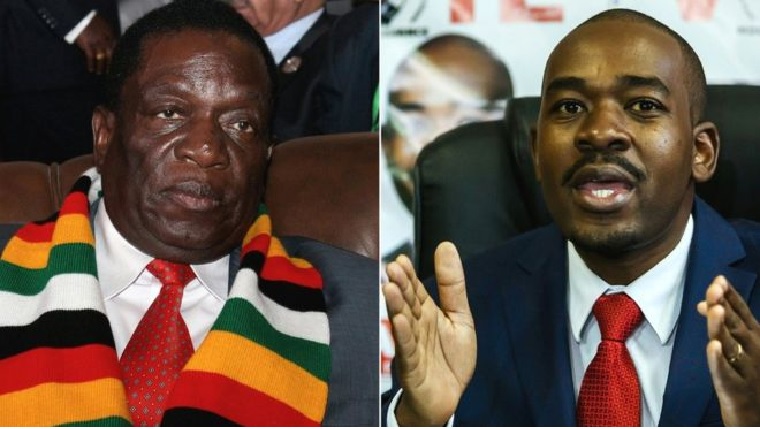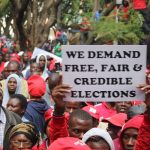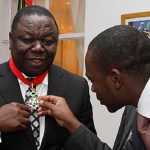Chamisa secured the leadership of his party, sidelining many more experienced politicians and pushing out Thoko Khupe, who left to form her own variant of the party.
Many other opposition candidates, such as former Vice-President Joice Mujuru and former Trade Minister Nkosazana Moyo, have declined to join the MDC under Chamisa’s leadership.
We hear that the party has developed a template for offering top posts to the widest range of Zimbabweans, should it win.
The smaller parties stand to get about 3-4% of the vote, according to Afrobarometer. That could still be a critical percentage in a second round of voting in the presidential elections.
For ZANU-PF, the considerations are more complex. The main rift in the party between supporters of Mnangagwa and the G40 faction supporting former First Lady Grace Mugabe, led by the now exiled former information minister Jonathan Moyo, has not healed.
As well as having cells in ZANU-PF, the G40 has established its own entity, the National Patriotic Front, which claims to have been promised millions in funding from the Mugabes.
The cash didn’t arrive and the NPF has not run an effective campaign. However, the G40 split with Mngagagwa could still sway several constituencies, perhaps splitting the vote and helping the opposition.
The last time ZANU-PF faced a serious breakaway party was Simba Makoni’s presidential bid in 2008. That split the traditional ZANU-PF vote and allowed the MDC’s Morgan Tsvangirai to come out on top in the first round of the presidential elections even though the opposition faced far more restrictive conditions than today.
In the second round, however, the opposition was bludgeoned into submission and withdrew after over 150 of its supporters were killed.
Another contest within ZANU-PF is the civil/military balance, and the reported tensions between Mnangagwa and Vice-President General Constantino Chiwenga.
At a funeral for Army Commander Valerio Sibanda’s mother, Constantino Chiwenga, Vice-President and former Commander of the Defence Forces, commended Sibanda for his role in smuggling Mnangagwa out of the country, following his dismissal in November 2017.
That directly contradicts the version that Mnangagwa’s allies have put out: that the President and his son made a daring escape from Zimbabwe, across the Mozambique border, through land mines and past armed sentries, echoing the narratives of liberation war heroes.
Despite this, insiders suggest that Mnangagwa and Chiwenga agree on the general direction: that is, Mnangagwa wins this year and hands over to Chiwenga, who is about ten years younger, in four years’ time. Meanwhile, Mnangagwa finds Chiwenga’s militaristic approach useful in pushing new demands on a dysfunctional bureaucracy.
On 19 July, Simon Khaya Moyo was fired as party spokesperson and replaced by Paul Mangwana. Khaya Moyo has never been a Mnangagwa supporter, having issued the press statement announcing Mugabe’s sacking of Mnangagwa.
In contrast, Mangwana is a strong Mnangagwa ally, and his hiring looks like a bid to bolster Mnangagwa’s campaign.
Other party officials say that Mangwana lacks the authority to settle contentious issues in the provincial coordinating committees, particularly within Mashonaland. Mnangagwa may be captaining the biggest ship but he has many more dissenters on board.- Africa confidential
(332 VIEWS)


